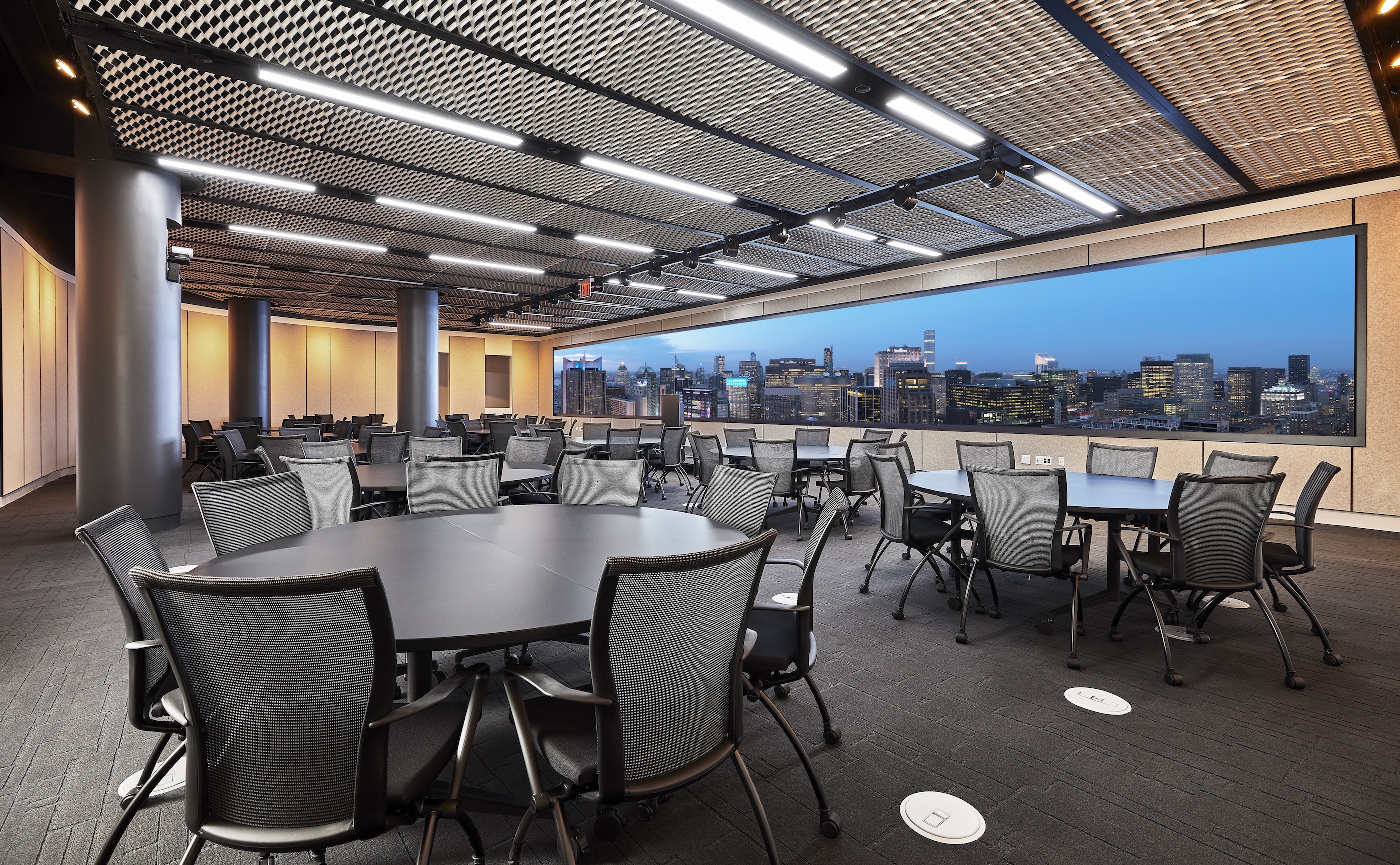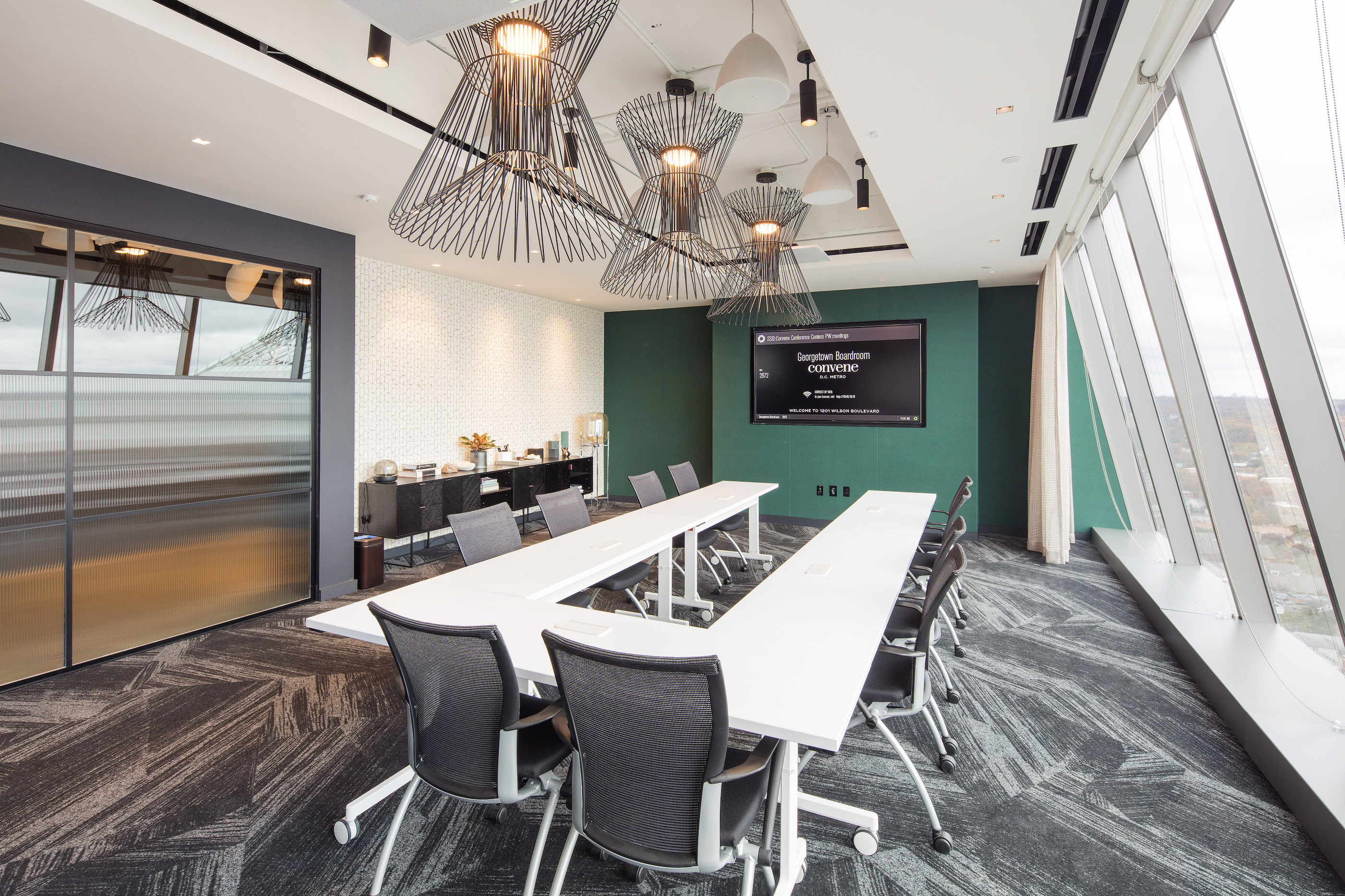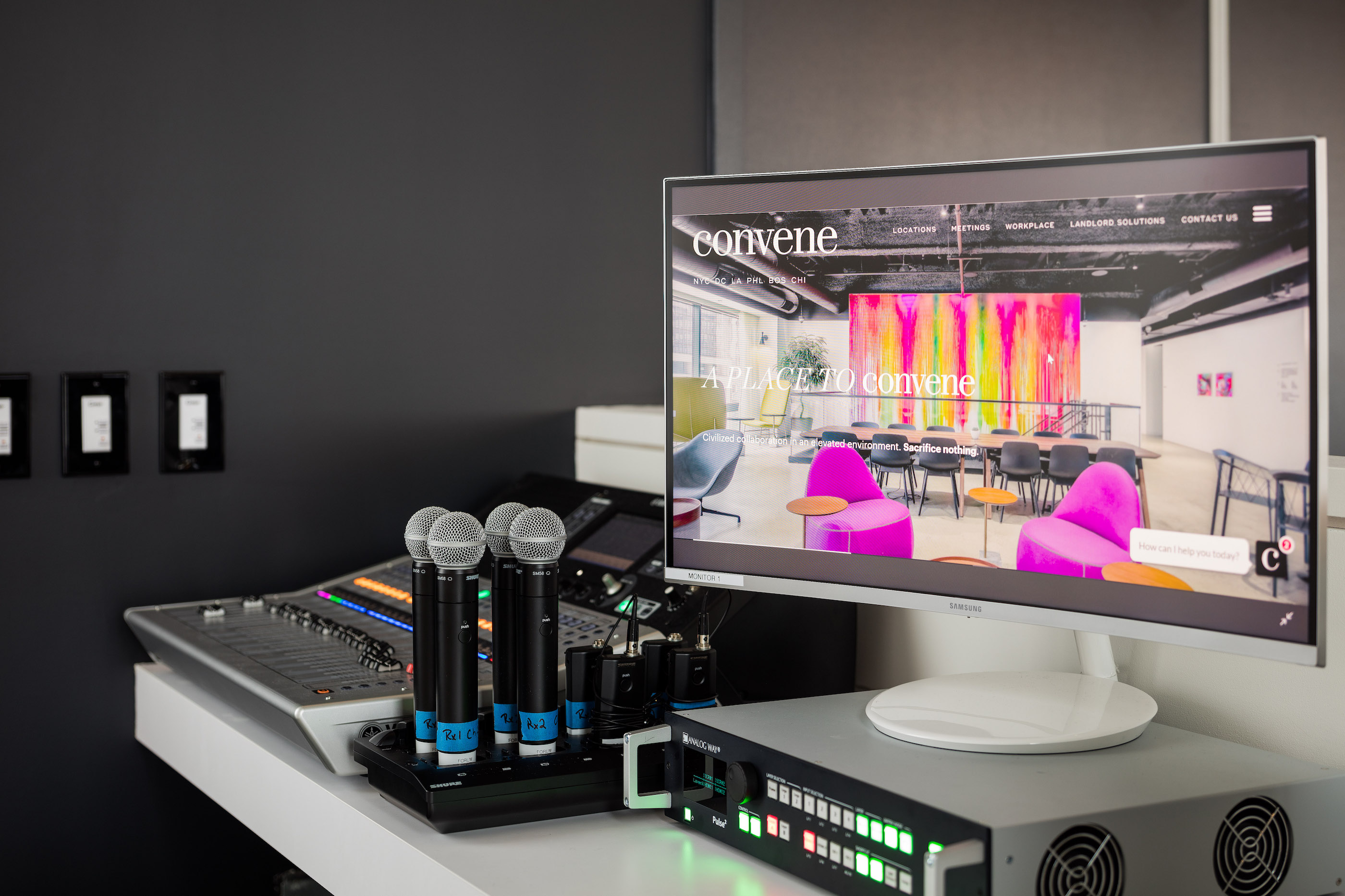In today’s workplace, “business as usual” no longer applies. BYOD and remote working have disrupted the corporate landscape, promising employees the freedom to work how, when, and where they want. Convene is at the heart of the workplace revolution, offering hospitality-driven work and meeting spaces in Class A office buildings across the country. Named one of America’s “Most In-Demand Startups” by LinkedIn and “100 Most Promising Companies” by Forbes, Convene is growing rapidly to meet the needs of tech-savvy clients looking for premium places to work, meet, and host events.

It’s no surprise that the company’s regional director of technology, Michael Judeh, is also on an ascendancy track. Judeh is an energetic rising star and AV expert in his own right, earning his AVIXA CTS and Crestron DMC-E-4K certifications, but his radical approach to tech management emphasizes relationships and soft skills over technical specs. His mantra, “deliver an exceptional user experience,” informs every element of his process. But is the notoriously proprietary, product-obsessed industry ready for his UX-driven model?
FROM AUDIO ACE TO TECH DIRECTOR
Judeh’s foray into the AV industry began with music, inside the recording studios of New York City where he is still based. Hands-on experience with recording technologies opened the door to production management and leading live sound for various bands, some of which toured frequently.
The live event aspect was particularly instructive for Judeh. “That was my first experience with the utilization of multiple technologies, and not just strictly audio,” he recalled. “There was lighting, video elements, and local staff, too.”
This inaugural experience with management ignited a fire in Judeh to push his career further. “I realized I loved working on new challenges and expanding my skill set.”

INVEST IN SOFT SKILLS AND UX
Those formative experiences on the road cemented another value: the importance—and joy—of working with people. “It’s something my mentors told me when I first started in the audio business,” he said. “A quote that has always stuck out to me is that a great experience is 10 percent turning knobs and 90 percent how you make people feel. I think that some younger, less experienced technicians don’t really grasp how important the ‘human aspect’ of AV is—the relationship building is paramount to long term, repeatable success.”
Judeh explained that providing and managing audiovisual tools is, at its core, rooted in customer service. “[AV] is almost like the hospitality industry, and a great experience should remind you of an amazing dinner at a high-end restaurant or boutique hotel,” he said. “Beautiful, seamless, easy, and memorable.”
The industry is making notable strides in UX, including pertinent education at trade shows and conferences, but Judeh maintains that “the user experience is something we overlook in the industry overall.”
Technical specifications are critical to the success of any project, small or large. “The product is obviously important,” he said, “to deploy, to execute. But I think we’re still missing a little bit of the focus.”
He applauds the wealth of resources for practical training and exposure to new equipment. “The trade shows do fun stuff with programming and professional development, but I think there are still areas of opportunity for us to develop more effective relational skills,” he said. “We focus so much on gear—the latest and greatest in deployment—we sometimes forget we’re still providing a service to people.”
BREAK THE FEATURE FEVER
A traditional paradigm Judeh hopes to revisit is the focus on features. “Manufacturers seem to be adding features into boxes just to sell more boxes,” he observed, “instead of exploring what users really need.” Add to that choice paralysis. How many wireless collaboration products offer the same functionality? While many new features are valuable, it can be hard to differentiate within certain categories.
The good news: more manufacturers are actively listening to tech manager feedback and shaping product suites based on that input. Judeh pointed to the Colorado-based Mersive team, makers of Mersive Solstice solution.
“Mersive is a software company that’s reliant on the hardware to deploy the product, but ultimately they’re a software team that’s based on user experience,” he said. “They’re one of the ones that understands that it’s not about the amount of features, but it’s the right features that are being requested by the clientele and what that should be used in on a day-today basis.”

TECH MANAGERS ARE THE NEW INFLUENCERS
Building rapport with integrators and vendor partners should be part of every tech manager’s roadmap. “It gives us more opportunity to progress, develop, and build relationships with people who influence the systems and tools themselves,” he said.
YES, DATA, BUT WITH CONTEXT
An emerging technology that piques Judeh’s interest is the new crop of analytics tools and platforms for AV metrics and data capture. Remote monitoring and data recording are not new, but Judeh is a vocal advocate for a bold rethinking of how we use—and misuse—AV data.
“How do you influence data and how do you interpret it?” he said. “Numbers aren’t hard facts. Data can spin a story any way you want it. I would love to see data analysis become more of the selling point, not just data capture. Also, how can we utilize this data to make more practical decisions about our space and how users behave and interact in them?”
He cited the example of a room that was booked via scheduling software, but data revealed that the participants didn’t utilize any of the AV technology in the room. The insights and interpretations of data points can help influence a tech team’s decision-making. Judeh’s practical blueprint includes ways to systematically analyze data as it correlates to the company’s mission.
“What are we doing with data to make a technology manager’s life easier, or how can he or she use that data to influence their enterprise or their clientele?” he said.
CULTURE AND CURIOSITY
Because Convene’s success is linked to its talent, finding future AV technicians is critical, and it starts with company culture. “At the company, we look for value alignment first,” he said. Culture is key, and if a candidate is not a culture fit, it automatically disqualifies them. “Skills are absolutely important, but what we’re looking for is someone who can work in our environment, whom we’re comfortable putting out in front of our clients. We couldn’t provide the level product we do at Convene if not for our technology managers and specialists who deploy it on a daily basis.”
If an applicant has all the requisite skills and a curious mind—demonstrating the capacity to learn quickly or is excited about challenges and learning—”that’s something I would rather have than someone with a robust skillset who lacks social connection.”

SECRET TO GREAT SERVICE
The inherent volatility in technology, even in the professional AV sector, can be an impediment to delivering frictionless service. That fact, compounded by room nuances, architectural obstacles, and supporting less technical users means that AV technicians must be adaptable.
“No matter what you do, how much you prepare, or how much you test and retest, there are always going to be variables that are beyond your control,” Judeh said. “That can make it hard to execute, but it also provides the opportunity for us to highlight value.”
Judeh reminds his team that professional AV jobs exist because things inevitably “go wrong.” It takes deep expertise to keep AV running smoothly for every user. “If you could just read a manual and do it, we wouldn’t be here,” he said. “Our job is to navigate any difficult situations if things go wrong, and to be the solution provider.”
While the unpredictable nature of soft codecs or UCC can dial up the pressure on an AV team, it also inspires creative thinking and needs-based strategies. Just as one negative review can damage a restaurant’s standing on Yelp, user experience can make or break a company’s reputation. Great customer service can support diverse collaboration styles and get people excited about returning to work—not to mention instill a sense of community and pride. “As in hospitality, it can be the same with enterprise technology,” Judeh added. “It has to revolve around exceptional customer service.”
Coworking on the Rise
“In 2005, tech workplaces dedicated 89 percent of space to individual desks. Today it’s 25 percent, and by 2025, individual desks may not exist.” (Source: Gensler) Read Gensler’s Design Forecast on Coworking: https://www.gensler.com/design-forecast-cowrking-isnt-just-for-startups.
AV at Convene
Partial Equipment List
- Analog Way P dLS350-3G
- Biamp Tesira Server I/O
- Brightsign XT243
- Chief FCA-800
- Cisco Catalyst 2960
- Crestron DM-MD64X64
- Da-Lite Advantage Deluxe Electrol Screen
- Extron 60-1471-13
- Leon HI400/HZ300
- Listen LT0-800-072-01
- Mersive Solstice SP-7000E
- Pakedge S3l
- Panasonic PT-RZ660LWU
- Shure MXW1/2/SM58
- Vaddio RoboSHOT 12/30
- Yamaha TF1/3/5
Margot Douaihy is a writer, storyteller, and recipient of the 2018 Jesse H. Neal Mattera Mentorship Award. She teaches at Franklin Pierce University.
